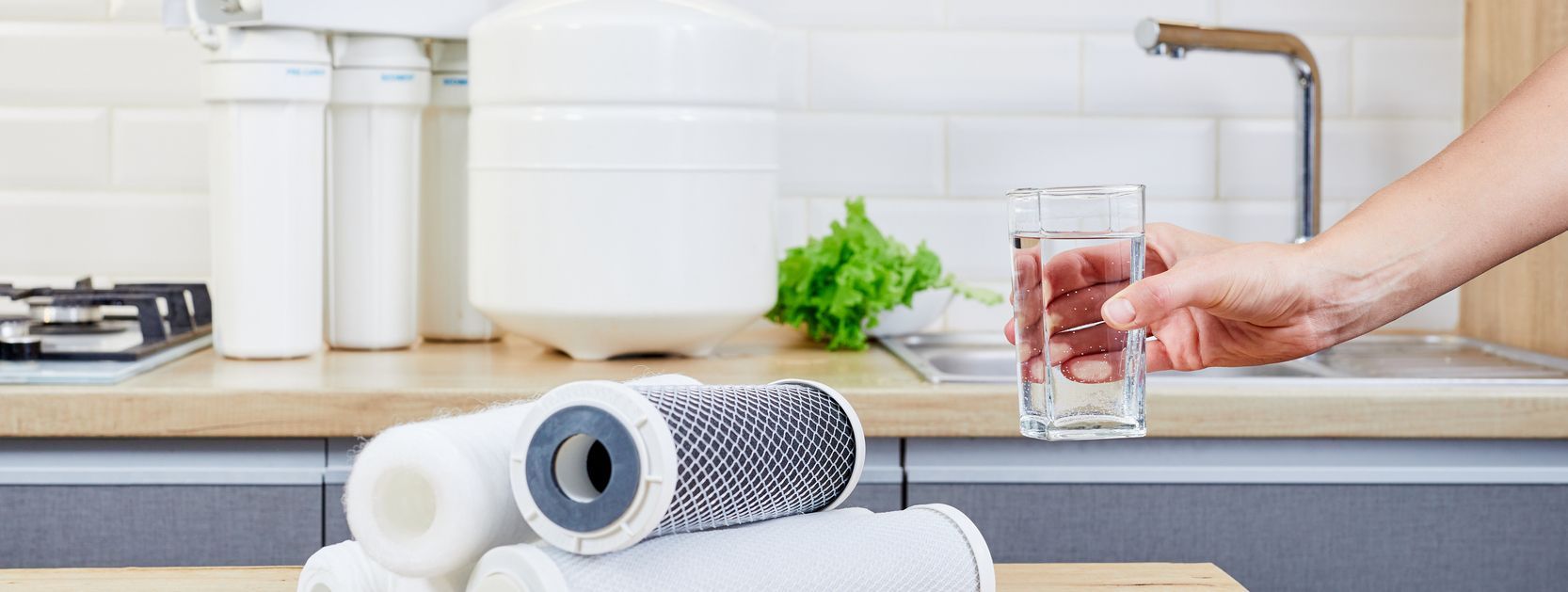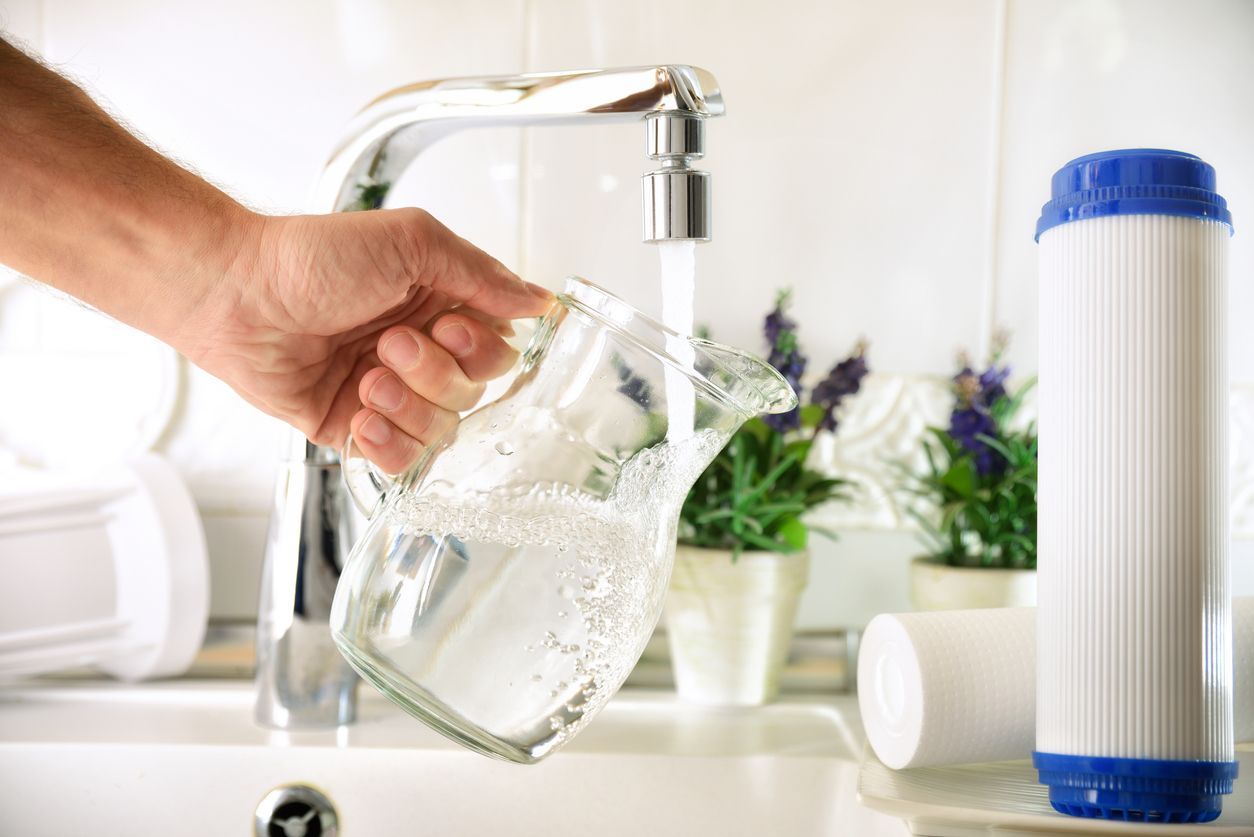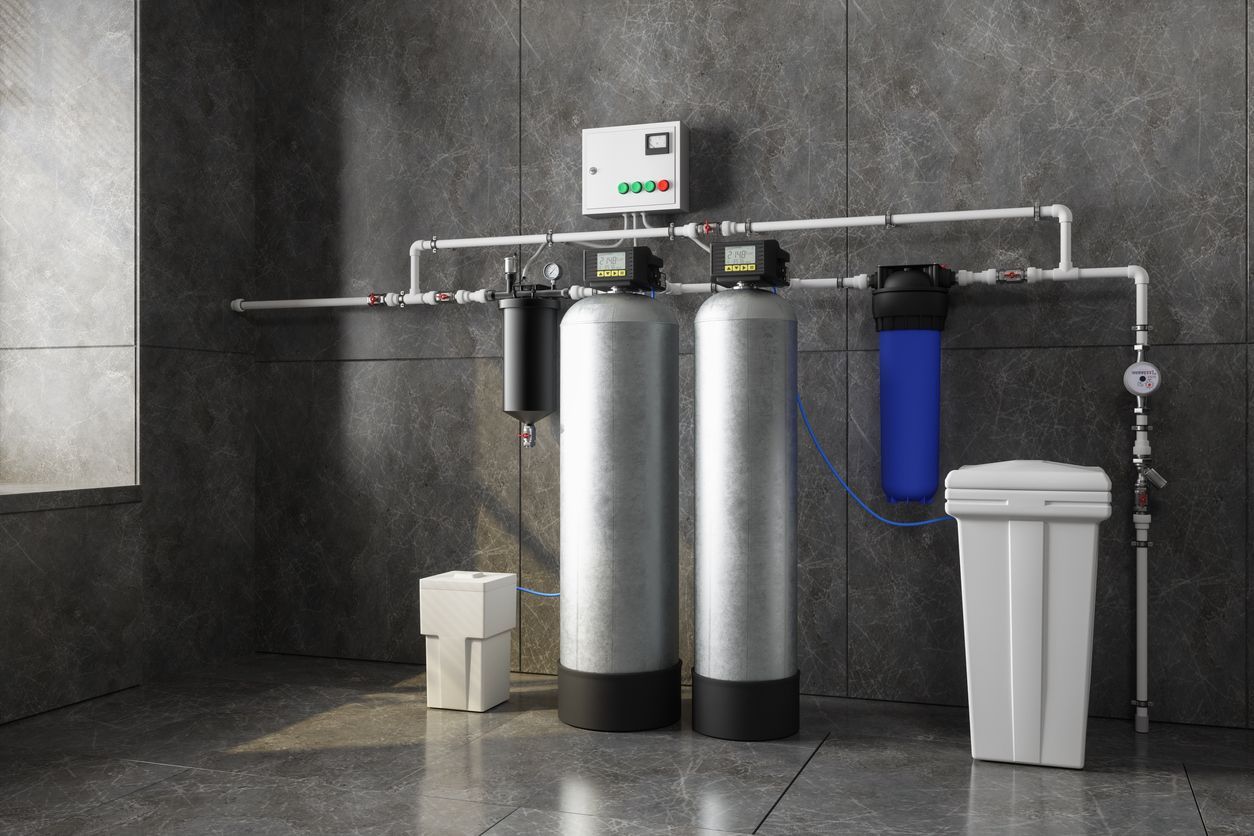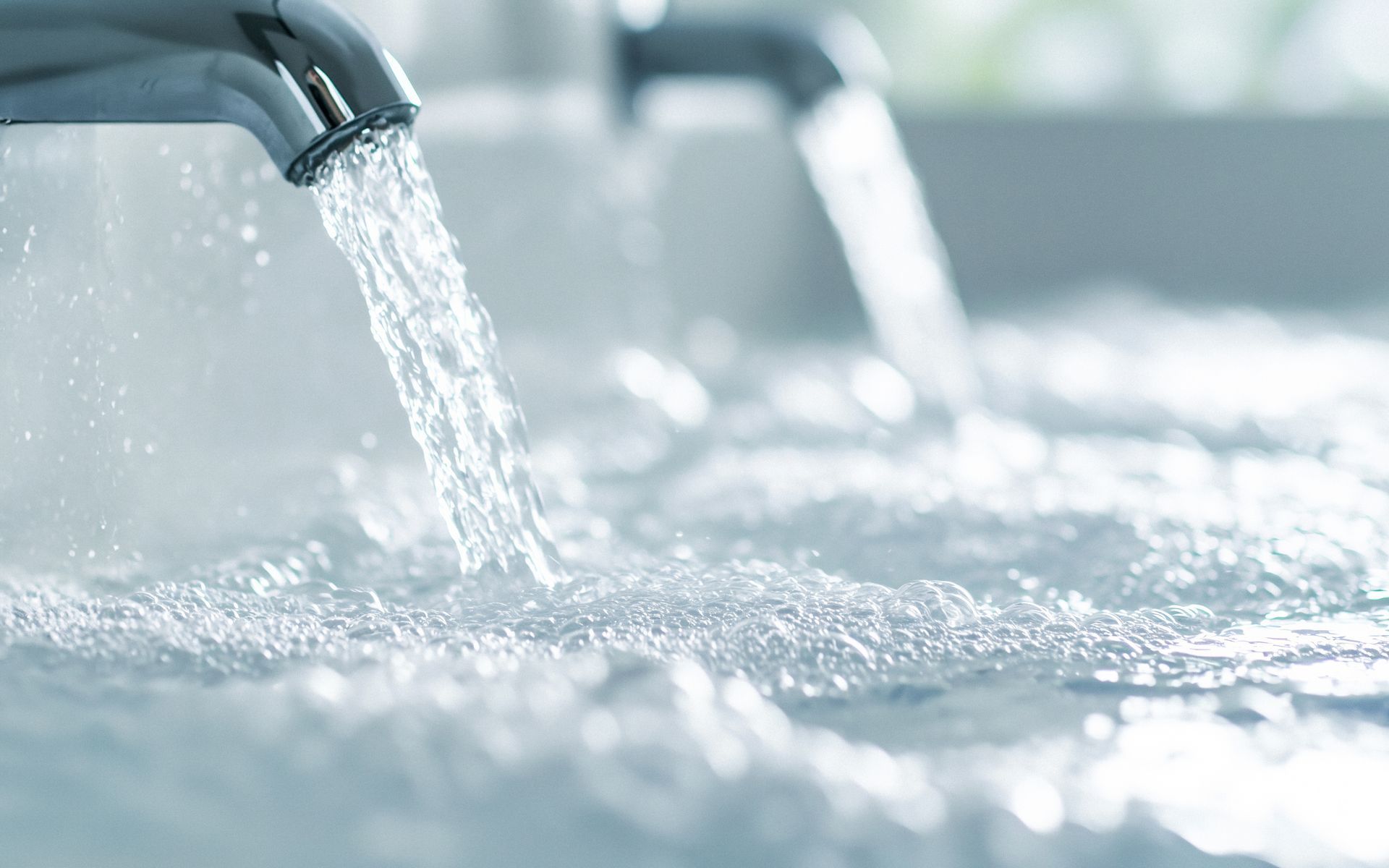Top-Rated Whole House Water Filter for Well Water Systems: A Comprehensive Guide
Choosing the correct whole house water filter for well water is crucial for tackling invisible contaminants that threaten your water quality and health. This guide cuts through the complexity, providing clear comparisons of top-performing filters to shield your home from bacteria, heavy metals, and other common pollutants found in well water.
Key Takeaways
- Well water contamination from natural elements, agriculture, and industry presents unique challenges and health risks, necessitating regular testing and a reliable whole house water filtration system to ensure safe and clean drinking water.
- Various types of whole house water filters are available for well water, including sediment pre-filters, iron and manganese removal filters, activated carbon filters, and UV light disinfection systems, each targeting specific contaminants and requiring regular maintenance.
- When selecting a whole house water filter for well water, it’s essential to consider water quality testing, align the system’s flow rate and capacity with household water consumption, and adhere to regular maintenance and replacement schedules to preserve filter effectiveness.
Understanding Well Water Contamination and Filtration Needs
Well water poses unique challenges due to contaminants that can compromise water quality and pose health risks. These contaminants often remain invisible to the naked eye, making regular testing at a certified laboratory necessary to ensure your water supply’s safety.
Understanding these contaminants and their potential impact on your health illuminates the importance of a reliable house water filtration system.
Common Well Water Contaminants
Well water contaminants can stem from various sources, including:
- Natural elements
- Agriculture
- Industry
- Residential influences
Bacteria, viruses, and parasites from sewage and animal waste in well water can lead to gastrointestinal illnesses. Nitrate and nitrite contamination can potentially cause methemoglobinemia or ‘blue baby syndrome’ in infants.
Some potential contaminants in well water include:
- Heavy metals like arsenic, lead, and copper
- Organic chemicals from household products and industrial activities
- Radionuclides from environmental and natural sources
These contaminants can lead to toxicity, chronic health issues, and an increased risk of kidney problems and cancer.
Iron and manganese contamination can cause staining, bad tastes, odors, and buildup in pipes and appliances, and iron or manganese bacteria can produce hydrogen sulfide, resulting in a ‘rotten egg’ smell. Excessive fluoride in well water can lead to skeletal and dental fluorosis, which involves joint pain and enamel issues.
Importance of Proper Filtration for Well Water
Ultrafiltration membrane filters are essential for well water systems as they provide the highest performance in reducing ultra-fine sediments, including shale rock flour and colloidal clays. Oxidation/filtration methods play a crucial role in treating iron and manganese in well water; by using oxidizing agents, these elements are precipitated making the water safe for consumption.
Investing in a well-designed house water filtration system, also known as a home filtration system, is a proactive measure that ensures your family’s access to safe and clean drinking water.

Types of Whole House Water Filters for Well Water
When it comes to ensuring clean water throughout your entire home, including well water that may carry various contaminants, WaterRight offers a range of whole house water filtration systems designed to cater to your needs. WaterRight systems are specifically tailored to remove contaminants commonly found in well water, providing you with peace of mind and consistent water quality.
For example, the WaterRight WWC25 is a well water filtration system that effectively removes chlorine and other impurities. With minimal maintenance requirements, such as a chlorine solution refill only every 1 to 3 months, the WWC25 ensures continuous water purity without hassle. Additionally, the WaterRight WF150K and WCFM500K models are central water filtration systems capable of removing a wide range of contaminants.
Featuring self-regenerating filter media, these systems provide you with clean water without the need for frequent filter replacements. Moreover, you can enhance the water quality further by pairing these systems with a salt-free water conditioner.
Sediment Pre-Filter Systems
Sediment pre-filters are an essential first step in any well water filtration system. Designed to capture sediment, dirt, and debris, these pre-filters help reduce turbidity and protect the efficiency of subsequent filtration stages. WaterRight offers high-quality sediment pre-filter systems that effectively remove sediment, ensuring that your water remains clear and free from contaminants.
The WaterRight WSP-ARB series features high-capacity, auto-flush spin-down sediment filters, providing robust protection against sediment buildup. With minimal maintenance requirements at the point of entry, these filters offer peace of mind and reliable performance.
Iron and Manganese Removal Filters
Iron and manganese are common contaminants found in well water that can cause staining and affect water taste. WaterRight's whole house water filters effectively remove iron and manganese, improving water clarity and taste. By eliminating these contaminants, WaterRight filters contribute to the overall improvement of water quality in your home.
Moreover, WaterRight offers specialized solutions for neutralizing acidic water, preventing corrosion in home infrastructure, and extending the lifespan of pipes and appliances.
Activated Carbon Filters
Activated carbon filters are essential components of any water filtration system, capable of removing chlorine, odors, and various organic compounds from well water. WaterRight's activated carbon filters significantly enhance water quality by eliminating bad tastes and odors, making your water more palatable for consumption.
These filters are particularly effective in removing contaminants from well water, including certain heavy metals and bacteria, ensuring that your water is safe and clean. With regular maintenance, such as replacing carbon filter cartridges every three to six months, WaterRight activated carbon filters provide long-lasting performance and reliable water purification.
UV Light Disinfection Systems
UV disinfection systems are highly effective in eliminating bacteria, viruses, and other harmful microorganisms from well water without altering its chemical composition. WaterRight offers UV disinfection systems that provide up to 99.99% disinfection, ensuring the safety of your well water.
For optimal effectiveness, WaterRight UV sterilizers should be placed after carbon filters, especially when the microbiological quality of the water source is questionable. With annual replacement of UV lamps, WaterRight UV filtration systems maintain peak disinfection performance, providing you with clean and safe water for your home.

Factors to Consider When Choosing a Whole House Water Filter for Well Water
Choosing a whole house water filter for well water necessitates careful consideration of various factors. Regular testing of well water is critical to maintain a safe and reliable water source, allowing for the addressing of specific water supply issues and the protection against potential contamination.
Moreover, to ensure a whole house water filter operates effectively, the system’s flow rate and capacity must be aligned with the household’s water consumption. Regular maintenance of water filters is vital for preserving their effectiveness and preventing new contaminations.
Water Quality Testing
Maintaining the quality of your well water is crucial for your family’s health. Regular testing is essential to track changes in water quality over time and to assess the effectiveness of any water treatment systems in place. Experts recommend that private well water be tested at least annually, with more frequent testing for wells from shallow sources or areas prone to contamination.
Testing the water for parameters specific to its intended use, such as human consumption or livestock watering, helps make informed decisions regarding water usage. After acquiring a water test report, the next critical step is selecting an appropriate well water filtration solution based on the identified contaminants and their concentrations.
Flow Rate and Capacity
When considering a water filtration system, it's essential to pay attention to the flow rate, as it directly impacts water pressure and filtration efficiency. Matching the system's flow rate and capacity with the household's water consumption is key to ensuring effective operation.
WaterRight's UV filtration systems boast impressive flow rates, ensuring optimal water pressure throughout the house. With a capacity to handle up to 14.7 gallons per minute, these systems can maintain consistent water flow even during peak usage times. In situations where a filter's backwash flow rate is double its service flow rate, homeowners may need to install multiple units in parallel to meet their water demand effectively.
Maintenance and Replacement Requirements
Maintaining a house water filtration system is not only about ensuring the quality of your water but also about extending the lifespan of the system. Regular maintenance of water filters is vital for preserving their effectiveness and preventing new contaminations.
Filters in whole house water systems have varied lifespans, with some needing replacement every six to nine months and others up to every five years. It is crucial to consult the water filter’s owner’s manual for manufacturer-specific guidelines regarding the frequency of replacements.

Our Recommended Whole House Water Filter for Well Water
WaterRight Impression Series and Impression Plus Series: The Ideal Choice for Homeowners
WaterRight's Impression Series and Impression Plus Series are standout options for homeowners seeking top-notch water treatment solutions. These series offer a range of features and benefits that make them the perfect fit for households looking to improve their water quality.
- Advanced Filtration Technology: The Impression Series and Impression Plus Series utilize cutting-edge filtration technology to ensure the highest level of water purity. With innovative filtration methods, including reverse osmosis, these systems effectively remove impurities, contaminants, and odors from your water supply, delivering clean and great-tasting water straight to your tap.
- Customized Solutions: WaterRight understands that every home has unique water treatment needs. That's why the Impression Series and Impression Plus Series offer customizable solutions tailored to your specific requirements. Whether you're dealing with hard water, sediment, chlorine, or other contaminants, these series provide flexible options to address your concerns and deliver optimal results.
- Space-Saving Design: The compact design of the Impression Series and Impression Plus Series makes them ideal for homes of all sizes. These systems are engineered to maximize efficiency without taking up valuable space, allowing for easy installation and hassle-free maintenance.
- Energy-Efficient Operation: WaterRight is committed to sustainability and energy efficiency. The Impression Series and Impression Plus Series are designed to operate efficiently, reducing water waste and energy consumption. By choosing these systems, homeowners can enjoy clean water while minimizing their environmental footprint.
- Durability and Reliability: Built to last, the Impression Series and Impression Plus Series are constructed with high-quality materials and components. These systems are engineered for durability and reliability, providing homeowners with long-term peace of mind and dependable water treatment solutions.
- Exceptional Performance: With superior performance capabilities, the Impression Series and Impression Plus Series consistently deliver outstanding results. Whether you're looking to improve the taste and clarity of your water or protect your appliances from scale buildup, these systems excel in providing unmatched water quality for your home.
The WaterRight Impression Series and Impression Plus Series are exceptional choices for homeowners seeking reliable, efficient, and high-performance water treatment solutions. With advanced technology, customizable options, and a commitment to sustainability, these series offer everything you need to enjoy clean, healthy water in your home.

Installation and Maintenance Tips for Whole House Water Filter Systems
Installing and maintaining a whole house water filter system for your well water requires careful planning and regular attention. Choose an accessible location for filter installation, ensuring there’s enough room for future filter changes and system maintenance.
Regular maintenance of a whole house water filter for well water should include checking for leaks in fixtures and appliances connected to the water system, to prevent water waste and potential damage to the system.
Professional vs. DIY Installation
Whether to opt for DIY or professional installation is a consideration that depends on your skill level, budget, and time constraints. DIY installation of whole house water filtration systems may result in cost savings as it eliminates the need to pay for professional labor. However, DIY installation requires a certain level of skill and understanding.
On the other hand, professional installation ensures that the whole house water filtration system is installed correctly, minimizing the risks associated with improper installation. Hiring a professional for installation can offer additional assurance through warranties and can provide expert advice for your specific water conditions.
Regular Maintenance Practices
Regular maintenance practices are crucial to ensure the effectiveness and longevity of your whole house water filter system. This includes checking for leaks in fixtures and appliances connected to the water system, to prevent water waste and potential damage to the system. It is also crucial to inspect supply hoses for leaks or damage as part of the maintenance routine and replace them when necessary to ensure the system’s effectiveness and prevent water damage.
Cleaning faucet traps and showerheads from scale buildup, mineral deposits, and debris is essential, particularly in areas with hard water, to maintain optimal performance of the water filtration system and guarantee good water flow. Installing shower filters can help prevent these issues, ensuring a more efficient filtration system.
Choosing the right whole house water filter for well water is an essential step towards ensuring safe and clean water for your household.
By understanding the unique contaminants in well water, exploring different types of filters, considering various factors in choosing a filter, and maintaining your system properly, you can enjoy the benefits of a reliable and efficient whole house water filtration system. Remember, pure, clean water is not a luxury, but a necessity for a healthy and comfortable home.
Frequently Asked Questions
Do you need a whole house filter for well water?
Yes, a whole house well water filter is essential for removing contaminants that can be unsafe for purposes beyond drinking and cooking, such as while brushing your teeth. Therefore, it is recommended to use one for well water.
How much does it cost to put in a filtration system to a well?
On average, homeowners spend around $2,500 on installing a filtration system for a well, but the cost can vary depending on the specific filter model chosen.
Why is it important to regularly test well water?
Regular testing of well water is important as it helps identify contaminants, track changes in water quality, and assess the effectiveness of water treatment systems in place. Testing will also determine the best filtration solution for the well water.
What are the common contaminants in well water?
The common contaminants in well water include bacteria, viruses, parasites, heavy metals like lead and copper, and organic chemicals. It is important to regularly test well water for these contaminants to ensure its safety.
What factors should I consider when choosing a whole house water filter for well water?
When choosing a whole house water filter for well water, consider factors such as water quality testing results, flow rate and capacity, and maintenance and replacement requirements. These factors will help you select the most suitable filter for your well water.


